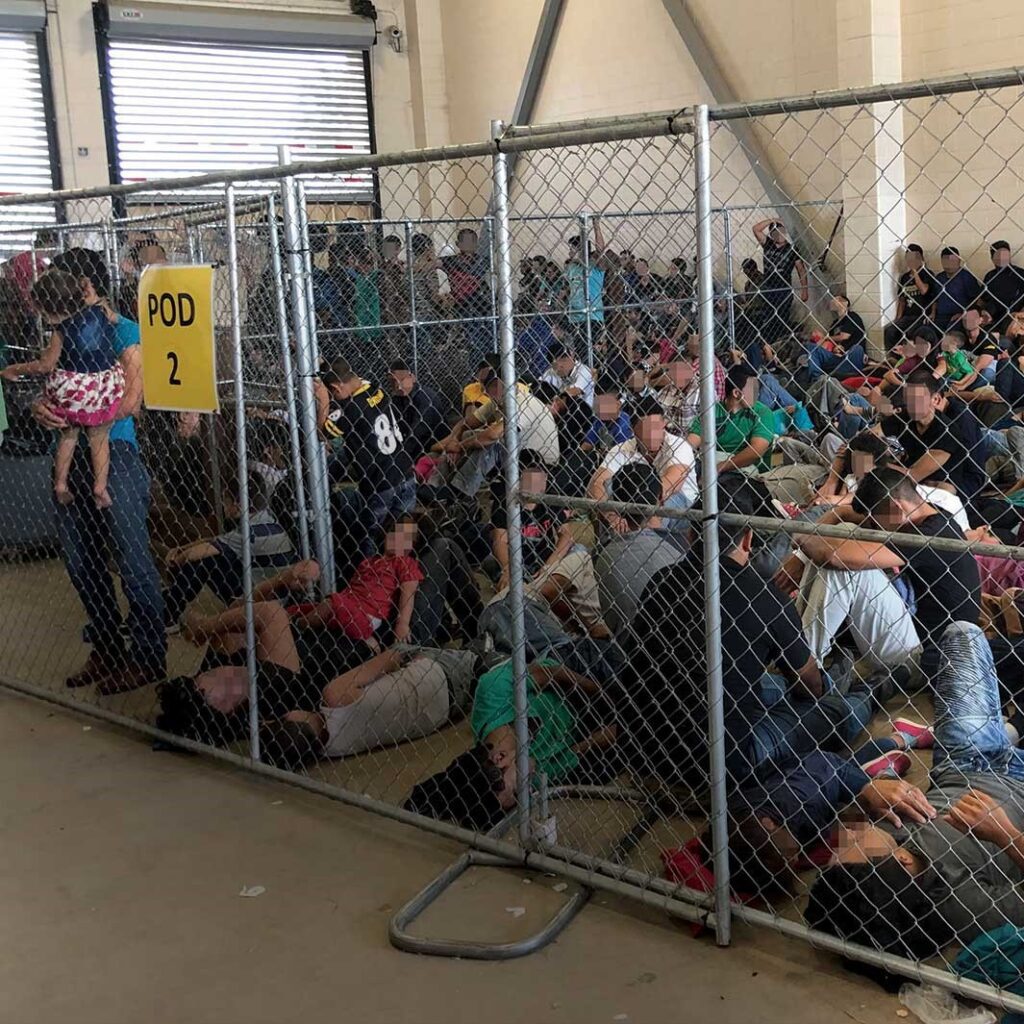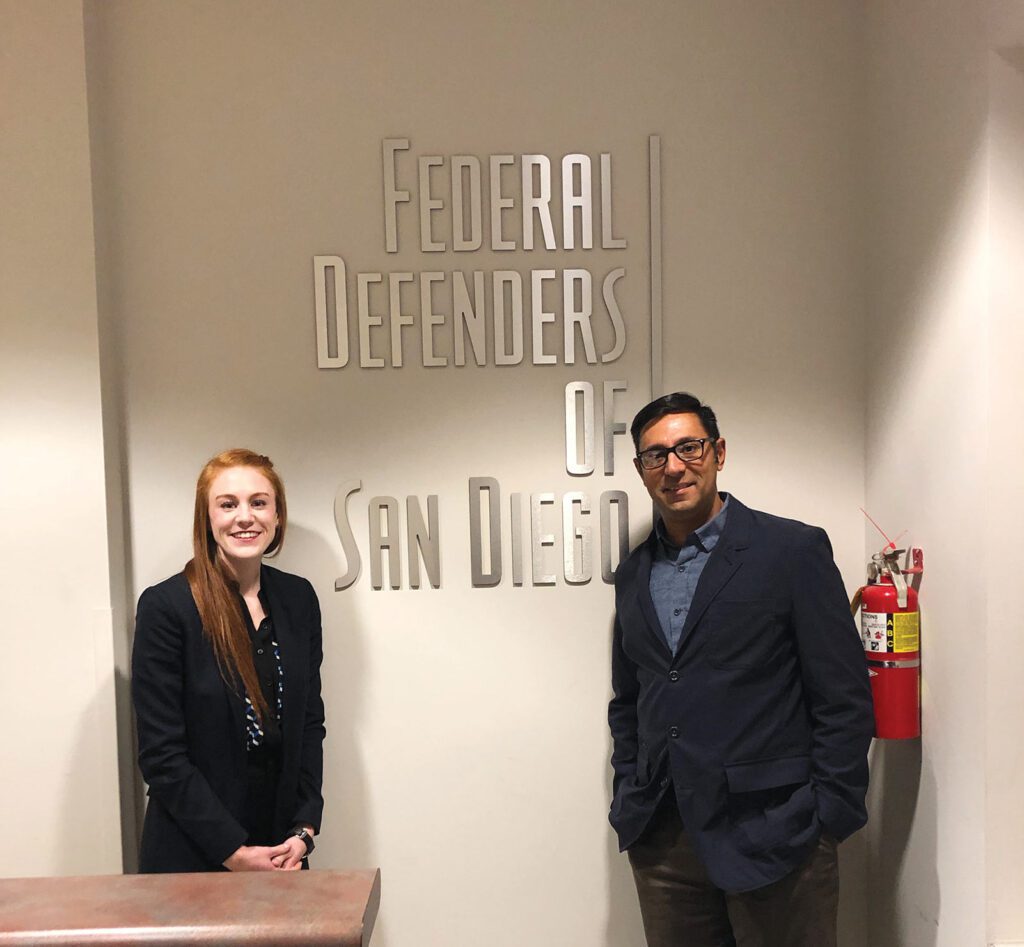Dr. Jude Bergkamp Works to Challenge Federal Immigration Policies Such As Operation Streamline.

Jude Bergkamp ’98, ’10, (Seattle, MA in Psychology, PsyD) program chair of the PsyD program at Antioch University Seattle, exemplifies Antioch’s social justice commitment in his research and teaching, particularly with his work on immigration and Operation Streamline.
Operation Streamline is a federal policy regarding the criminalization of immigration. “Basically the way that works is that everyone who crosses is part of the immigration system, which is not criminal in nature,” says Bergkamp. “When you cross the border, you are instantly charged with a misdemeanor and deported. If you cross again, then it is an instant felony and you go to prison if you are found guilty.”
Perhaps most alarming, Operation Streamline was meant to expedite the criminal hearing process. Traditionally, there are separate arraignment sections for pleas and sentencing that allow the defendant to consult with their lawyer throughout the process. This was not the case with Operation Streamline.

“Historically, criminal hearings have always been individual so that the court can take individual details into account when deliberating,” says Bergkamp. “But this is violated in Operation Streamline proceedings, where they condense the phases of the legal process into one—you plea and are sentenced at the same time.”
Multiple defendants are tried in one hearing with as many as 80 people in one session, which does not allow for the consideration of individual factors in sentencing.
Since 2005, the policy has aimed to criminalize all unauthorized border crossings, especially in Texas and New Mexico, but during the Trump administration, it has reached unprecedented levels.
“In July of 2018, then Attorney General Jeff Sessions and the Feds basically made it mandatory that California put Operation Streamline into effect,” says Bergkamp. “Previously, they had been fighting and refusing to do it, but with that order, California had to start prosecuting everyone who crossed the border.”
This led to serious confusion for defendants, many of whom did not know that this was being enforced and did not understand the difference between having a criminal attorney and a civil immigration attorney for representation.
Later that summer, media coverage of family separation and deleterious conditions at the border helped bring extra attention to the policy, and the Federal Defenders of San Diego were able to acquire an ACLU grant to help challenge Operation Streamline in California and nationally.
A UC Berkeley and NYU School of Law research group collaborated to show that the coercive detainment conditions, lack of representation by counsel, and the abbreviated hearings all violated the defendants’ right to plea in an effective manner.
Dr. Bergkamp received the 2019 Washington State Distinguished Psychologist Award. The award recognizes outstanding professional contributions to knowledge, to applied psychology in professional practice, or in the public interest.
In September 2018, the group brought Bergkamp onto the project for a forensic, culturally competent consultation. He and PsyD student Kelle Agassiz went to detainment facilities on both sides of the border multiple times to interview prosecutors and defendants and observe the abbreviated hearings.
Through the visits, Bergkamp realized the truly coercive nature of these detainment facilities.
“They were held in really terrible conditions,” says Bergkamp. “The lights are always on. It’s always cold, they call it ‘the ice box.’ They’re given maybe one meal a day, and there’s one toilet, open to the rest of the room. Groups and families are split up and they don’t know when they are getting out, or what will happen next.”
From there, they are transported to a large building, given 20 minutes to meet with an attorney, and then filed into the courtroom for the proceedings.
“That in and of itself is fairly coercive,” says Bergkamp. “A huge number of people plea guilty, perhaps out of this coercion, and almost certainly without an awareness of what a criminal conviction will mean for future attempts to immigrate to the US.”
After the visits, Bergkamp and his students took the data they collected and did an extensive literature review to find research that supported their idea that the hearings do not allow people to give a knowing, intelligent, and voluntary plea. The report of their findings was included in an amicus brief, prepared by NYU, that challenged Operation Streamline in the Ninth Circuit Court.
On July 24, 2019, the Ninth U.S. Circuit Court of Appeals overturned an illegal entry conviction of migrant Oracio Corrales Vazquez. The ruling means a win for the 400 illegal entry cases that have been appealed on the same grounds and that every one of the thousands of people convicted in San Diego’s Streamline over the past year is factually innocent.
Bergkamp’s work on this project is an example of citizen psychology, in which psychologists export their unique expertise and experience to influence public policy. In line with Antioch’s mission, his work displays the power of applied psychological science for social justice.
In hindsight, Bergkamp says, “The Ninth Circuit decision was a highlight of my career, something I’m proud of. But, it feels like just the beginning of a larger effort to counteract the dehumanizing and dangerous policies regarding immigration at our Southern border. We all need to find the small places in which we can have influence and make our move!”


